Make a Donation
And help us make a difference.
We need your support to be able to continue enhancing the lives of people in communities wherever Rugby League is played.
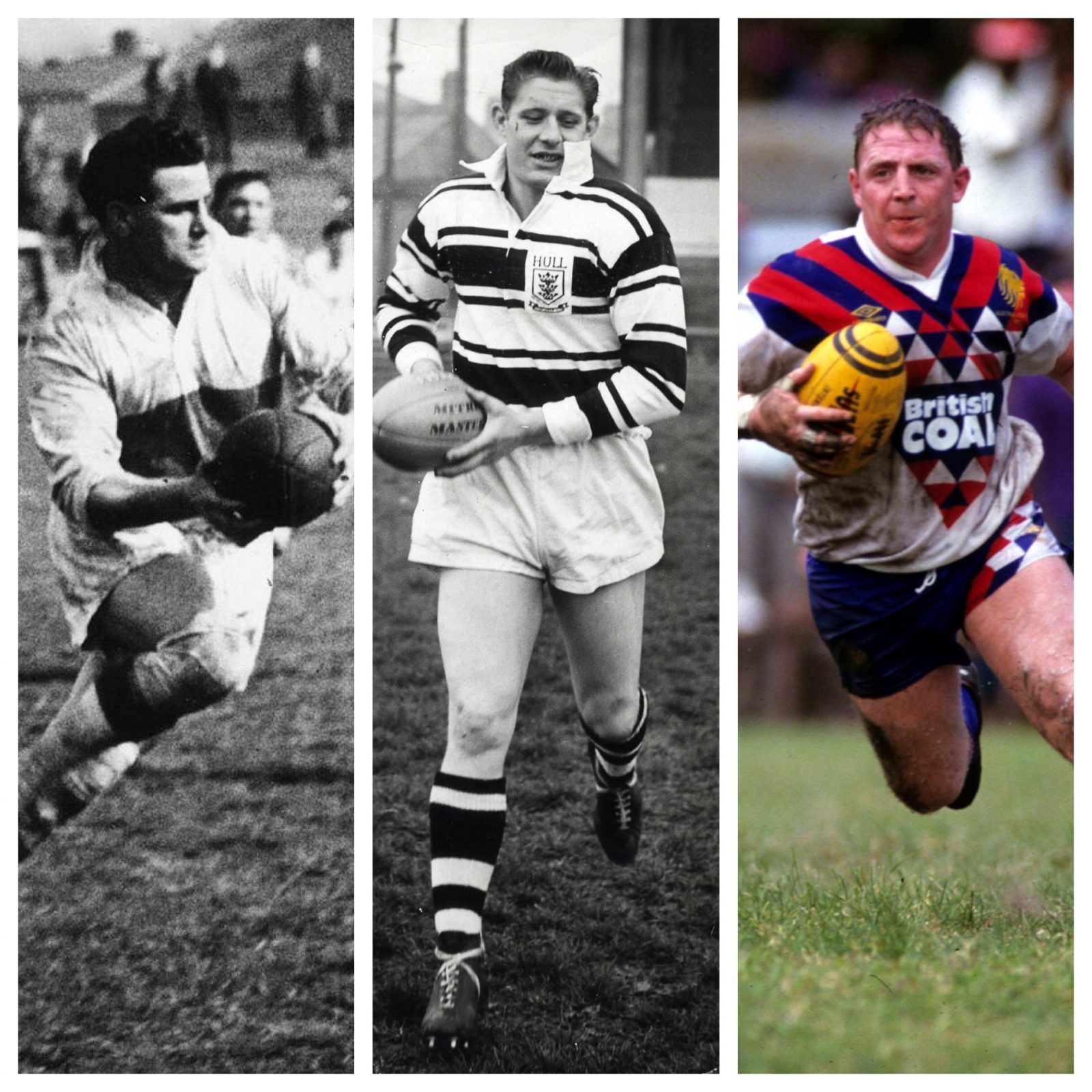
Andy Gregory, Derek Turner and Johnny Whiteley MBE will be elevated to the sport’s most exclusive club at the Rugby League Hall of Fame and RLIF Golden Boot dinner at Elland Road, Leeds, on Wednesday November 7.
All three are former Great Britain internationals who achieved considerable success at club and representative level: Andy was a multiple Challenge Cup winner with Widnes and Wigan; Derek was captain of the all-conquering Wakefield Trinity team of the 1960s; and Johnny led Hull FC to two Wembley finals, as well as enjoying Ashes-winning success as a player and coach.
Andy and Johnny will be joined by their families at the induction dinner, which will also be attended by current Hall of Fame member Neil Fox MBE, Billy Boston MBE, Lewis Jones, Garry Schofield OBE and Malcolm Reilly OBE, as well as family representatives of Jim Sullivan and Mick Sullivan.
Chris Rostron, the Head of Rugby League Cares, said: “Hundreds of thousands of players have played Rugby League since 1895 and Johnny, Derek and Andy represent the best of the best.
“All three had stellar careers and quite rightly deserve their place in Rugby League’s Pantheon alongside the existing 25 members of the Hall of Fame.
“It is an enormous honour and privilege for Rugby League Cares to have the responsibility of hosting the Hall of Fame dinner and we are looking forward to celebrating the sport’s greatest heroes at what will be a very special event.”
The Rugby League Hall of Fame is the highest honour any player can aspire to and has been awarded to just 28 players since the sport’s inception in 1895.
To qualify for membership of the Hall of Fame, a player must meet stringent criteria including a record of outstanding achievement at the very highest levels of the game; have a reputation that transcends the era in which he played; and made a contribution to the game that will last as long as rugby league is played.
Players are only considered for inclusion once they have been retired for 10 years; they must also have played at the highest level of Rugby League for a minimum of 10 years.
Members of the public are invited to help celebrate the induction of Johnny Whiteley, Derek Turner and Andy Gregory into the Rugby League Hall of Fame and RLIF Golden Boot dinner, tickets for which are available priced £40.
To purchase tickets, please email info@rlcares.org.uk
The three new inductees are as follows:
Andy Gregory
If it were possible to clone the definitive, classic British scrum-half, the finished product would closely resemble Andy Gregory.
For what a finished product he was.
From his junior days at Wigan St Patricks to his imposing presence on the international stage, Andy Gregory was always a player who commanded the respect and the admiration of fellow team-mates and rivals alike.
Standing just 5ft 5in tall, Andy strode through his 15-year career as a giant among men. He gained 26 caps for Great Britain, played in six Ashes series against Australia, toured as a Rugby League Lion on three occasions and graced the famous Wembley turf a remarkable nine times, never finishing on the losing side at the national stadium.
Andy’s professional career began at Widnes in 1980-81, a season which ended with him collecting a Challenge Cup winners’ medal in the Chemics’ 18-9 victory over Hull KR. He was at scrum-half for Widnes again in the drawn Wembley final of 1982 and collected a second winners’ medal in 1984 before joining Warrington.
In 1986 Andy moved to his hometown club to become a pivotal member of the most successful Wigan team of all time. He won the Lance Todd Trophy in 1988 and repeated the feat against his old club Warrington two years later during an era when Wembley became Wigan’s second home.
In the hallmark of a truly great player, Andy revelled in the cut and thrust of the Test arena.
His finest hour as a Lion came in the third Test of the 1988 tour, when Great Britain upset the odds to stun Australia in Sydney, largely through the brilliance of Andy, who was at his imperious best.
After a short spell at Leeds, Andy joined Salford in 1994 and became coach the following year, leading them to promotion to Super League and a famous quarter-final victory over Wigan in 1996 that ended his old club’s 42-match unbeaten Cup run.
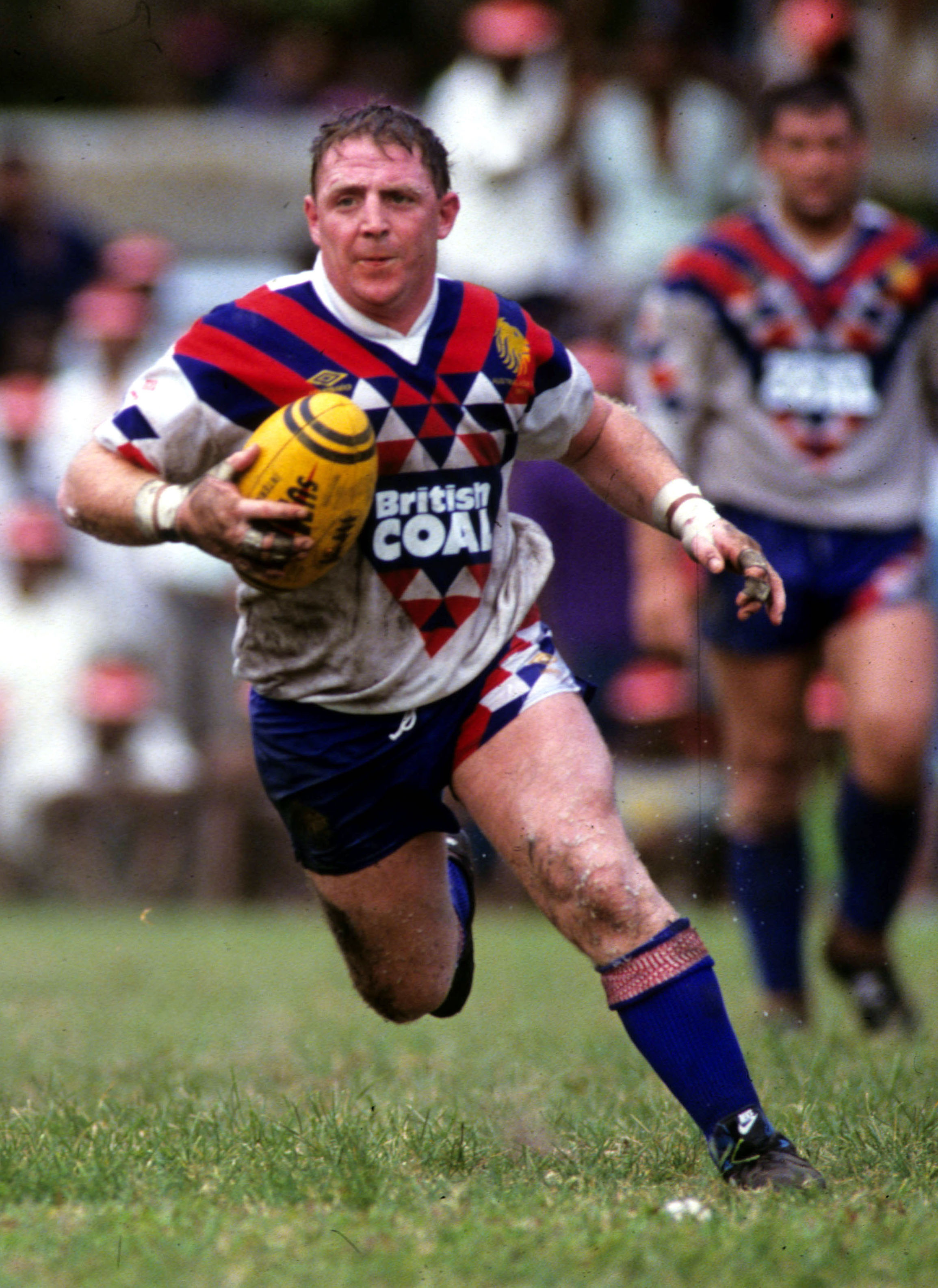
Picture courtesy Varley Picture Agency
Derek Turner
For a player who was written off as a junior by Wakefield Trinity as being neither good enough or big enough to play for his home-town club, Derek ‘Rocky’ Turner did alright.
In an era where Rugby League was a sport often played without compromise, Derek would establish a reputation as a hard man who commanded the respect of everyone he played with and against.
After being rejected by Wakefield, Derek signed for Hull Kingston Rovers in 1951 as an 18-year-old centre, standing 5ft 11in tall and weighing 12st 4lbs. Rarely has so much power been captured within such an athletic frame.
He joined Oldham for a fee of £2,750 in 1955 and over the next four years helped the club to a Championship win, three Lancashire Cups and two Lancashire League Championship medals.
Derek pulled on a Trinity jersey for the first time in March 1959: the 28-16 win at Batley would prove to be the start of a golden era in Wakefield’s proud history.
Over the next five years, Derek steered the Belle Vue club to seven trophy wins and established a reputation as one of the game’s greatest-ever leaders.
The loose forward was named vice-captain of the Ashes-winning Great Britain tour team of 1962, five years after making his tour debut in the 1957 World Cup. His ‘over vigorous’ style of play led to him being sent-off three times on the 1962 tour, however.
Derek set himself high standards and expected those around him to meet them, too: with Derek at the helm, Wakefield took few prisoners and lit up the game with both flair and brute force.
He made 24 appearances for Great Britain, including 11 successive Tests at loose forward after making his debut in the second Test versus the 1956 Kangaroos.
Derek Turner retired in 1966 and left Wakefield two years later to begin a successful coaching career. He coached Castleford to Wembley glory in 1969 and enjoyed back-to-back Challenge Cup final appearances with Leeds in 1971 and 1972, when he also masterminded the Loiners’ Championship final success.
Derek sadly passed away on July 31, 2015. He was 82.
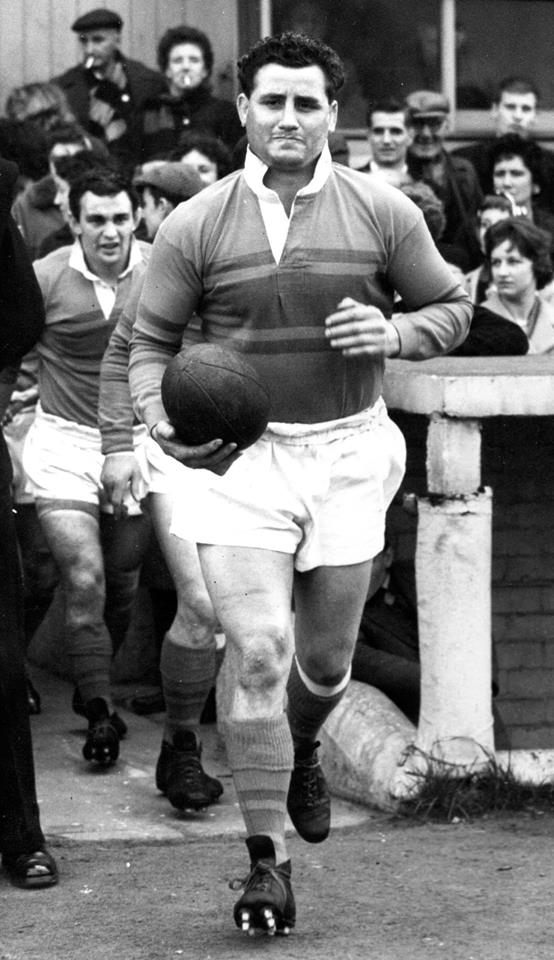
Johnny Whiteley MBE
Johnny Whiteley played all his club rugby in the black and white of Hull FC, for whom he is regarded as the club’s greatest servant in its 153-year history.
Be it as a player, captain, coach or president, Johnny has never given less than 100 per cent to the club he grew up living in the shadow of as a young boy in West Hull.
It says much about the nature of the man that in Yorkshire’s most divided city, Johnny commands respect on both sides of the River Hull, having coached Hull Kingston Rovers for two years from 1970, the year he led Great Britain to what remains their last Ashes series victory over Australia.
Johnny made 15 appearances for Great Britain, most at loose forward where he faced stiff competition for selection from his fellow Hall of Fame members Derek Turner and Vince Karalius.
He enjoyed that special quality possessed by so many great players, that of timing. As well as a phenomenal workrate, Johnny was a ball-handling loose forward of the highest order and a man whose game management was simply peerless.
Johnny made his debut for Hull in 1950 and went on to play more than 400 games for the Airlie Birds until his retirement in 1965, when he succeeded Roy Francis as coach.
In 1956, he was appointed club captain and that season led Hull to Championship final success against Halifax at Maine Road, Manchester.
Having been a non-playing member of Great Britain’s 1954 World Cup squad, Johnny made his Test debut in 1957 in a 31-6 World Cup defeat to Australia at the Sydney Cricket Ground, where he played much of the match at centre.
He played in all three Ashes Tests of the 1958 tour, including the famous Battle of Brisbane where captain Alan Prescott led the Lions to victory by playing on with a broken arm. Johnny was a try-scorer in the third Test decider as Great Britain clinched the series 40-17.
He was a key figure in Great Britain’s last home Ashes series win in 1959, scoring a try and playing an influential role as in the series-clinching 11-10 second Test victory.
Back at home, Johnny led Hull FC to Wembley finals in both 1959 and 1960.
He was awarded an MBE for service to Rugby League in 2005 and in 2009 joined Nelson Mandela and Archbishop Desmond Tutu in being given the freedom of the city of Hull.
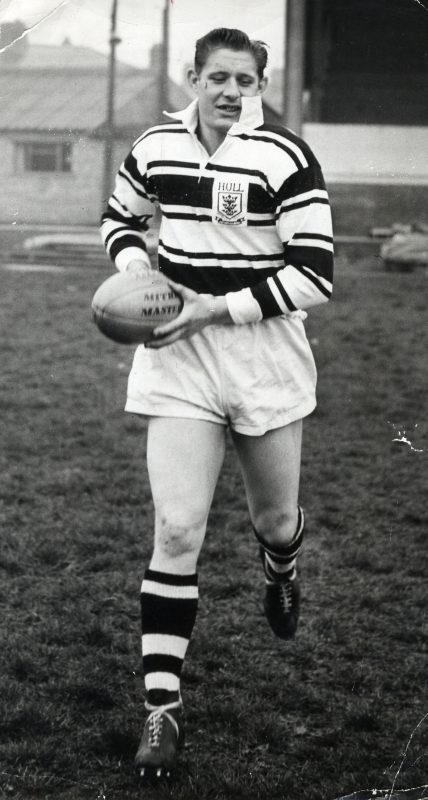
Image courtesy Hull Daily Mail
The 28 members of the Rugby League Hall of Fame, with the year they were inducted, are:
Billy Batten (1988)
Brian Bevan (1988)
Billy Boston (1988)
Alex Murphy (1988)
Jonty Parkin (1988)
Gus Risman (1988)
Albert Rosenfeld (1988)
Jim Sullivan (1988)
Harold Wagstaff (1988)
Neil Fox (1989)
Vince Karalius (2000)
Roger Millward (2000)
Tom van Vollenhoven (2000)
Eric Ashton (2005)
Douglas Clark (2005)
Ellery Hanley (2005)
Martin Hodgson (2005)
Lewis Jones (2013)
Martin Offiah (2013)
Garry Schofield (2013)
Mick Sullivan (2013)
Willie Horne (2014)
Malcolm Reilly (2014)
Shaun Edwards (2015)
Albert Goldthorpe (2015)
Andrew Gregory (2018)
Derek Turner (2018)
Johnny Whiteley (2018)
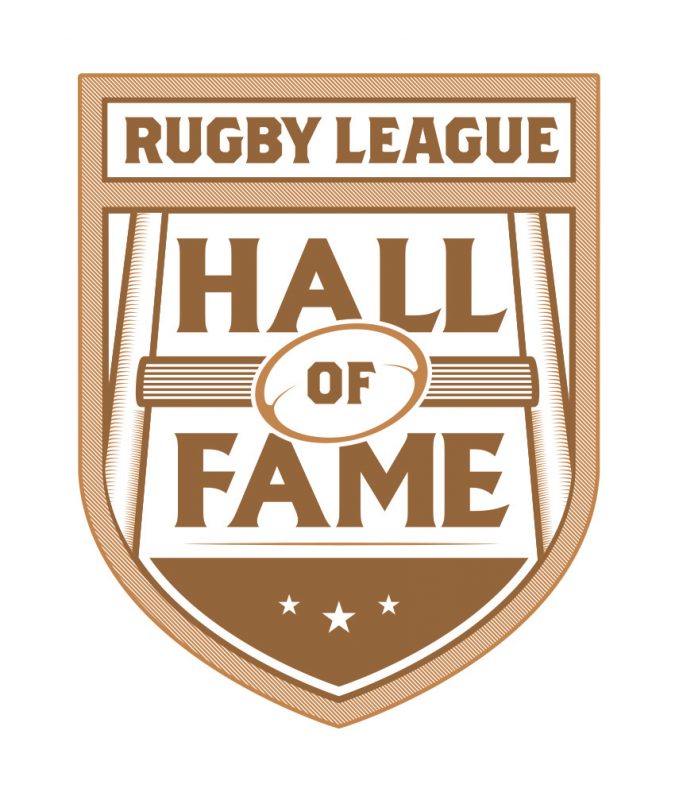
And help us make a difference.
We need your support to be able to continue enhancing the lives of people in communities wherever Rugby League is played.